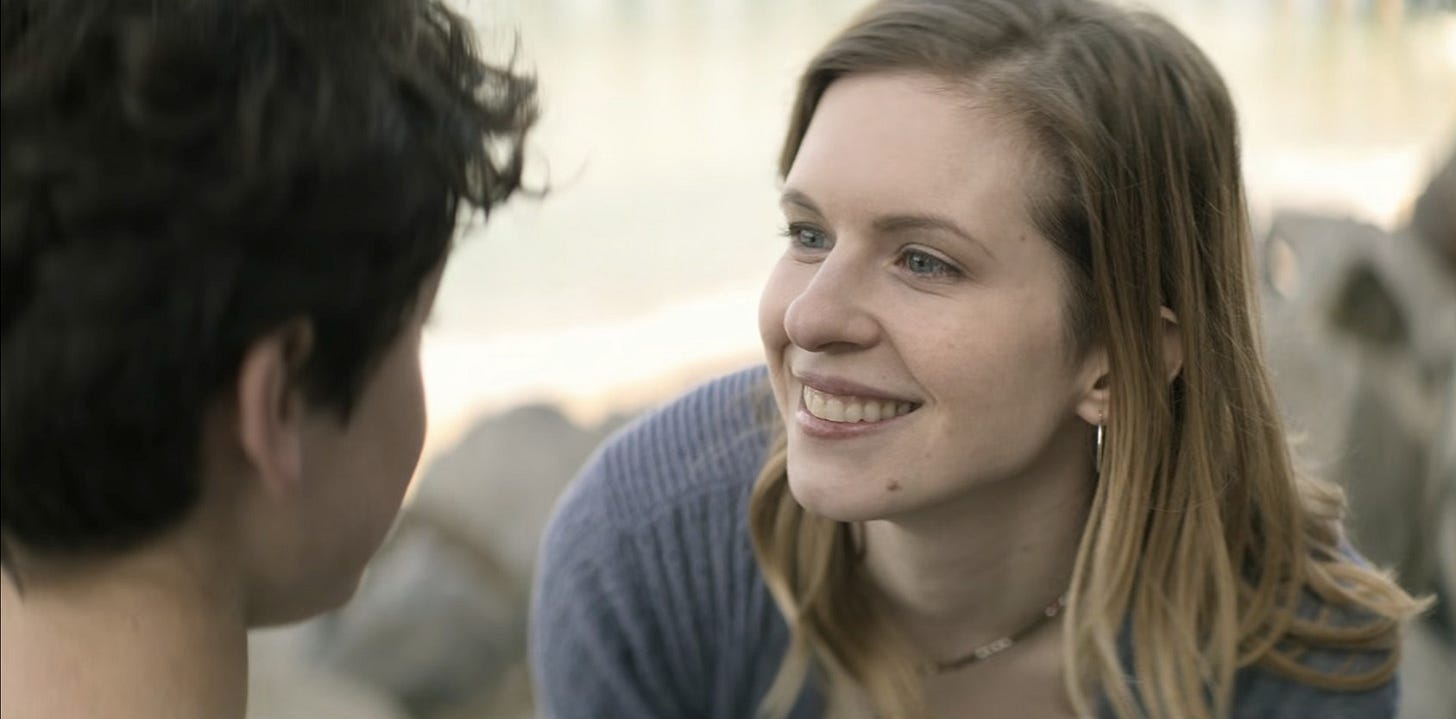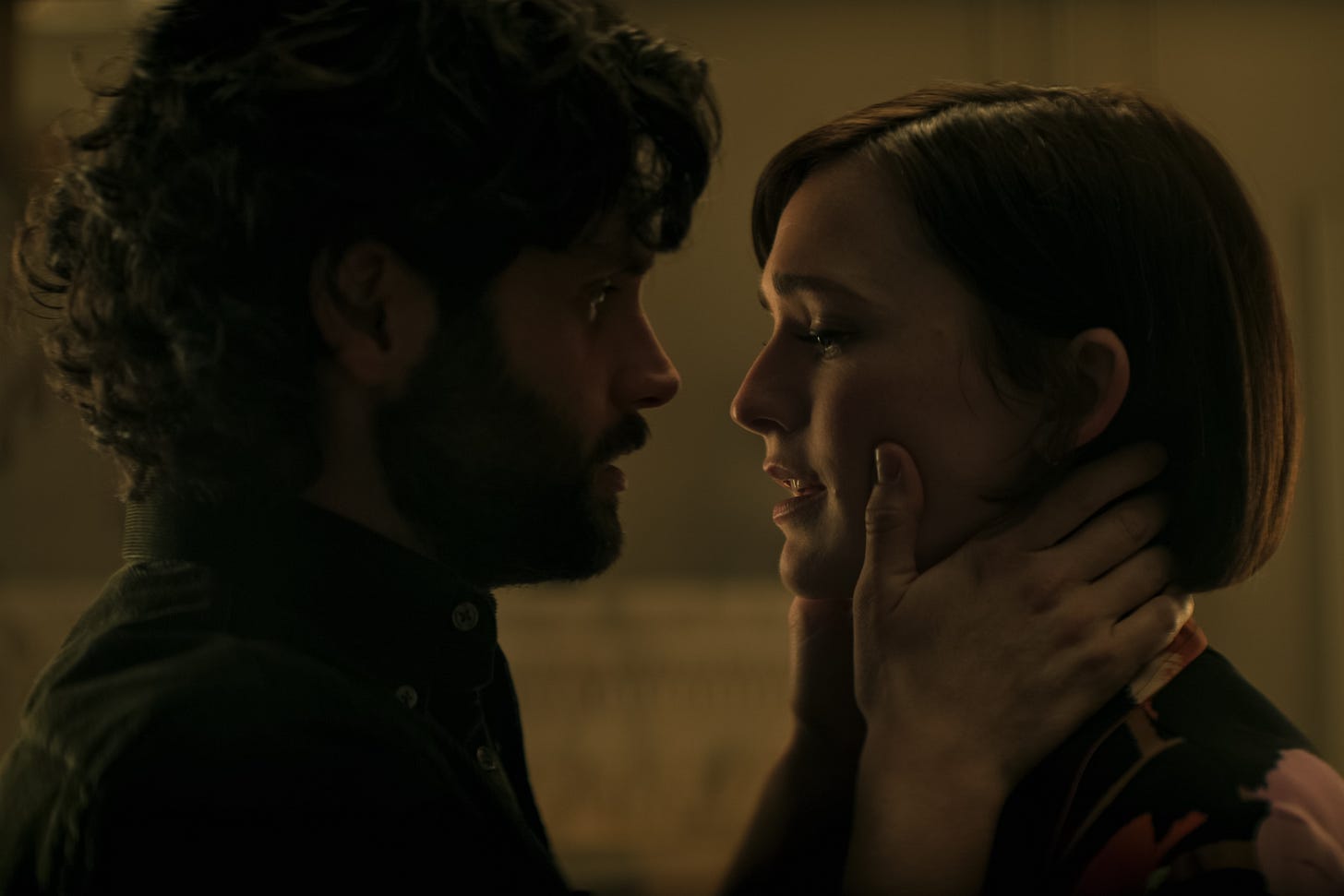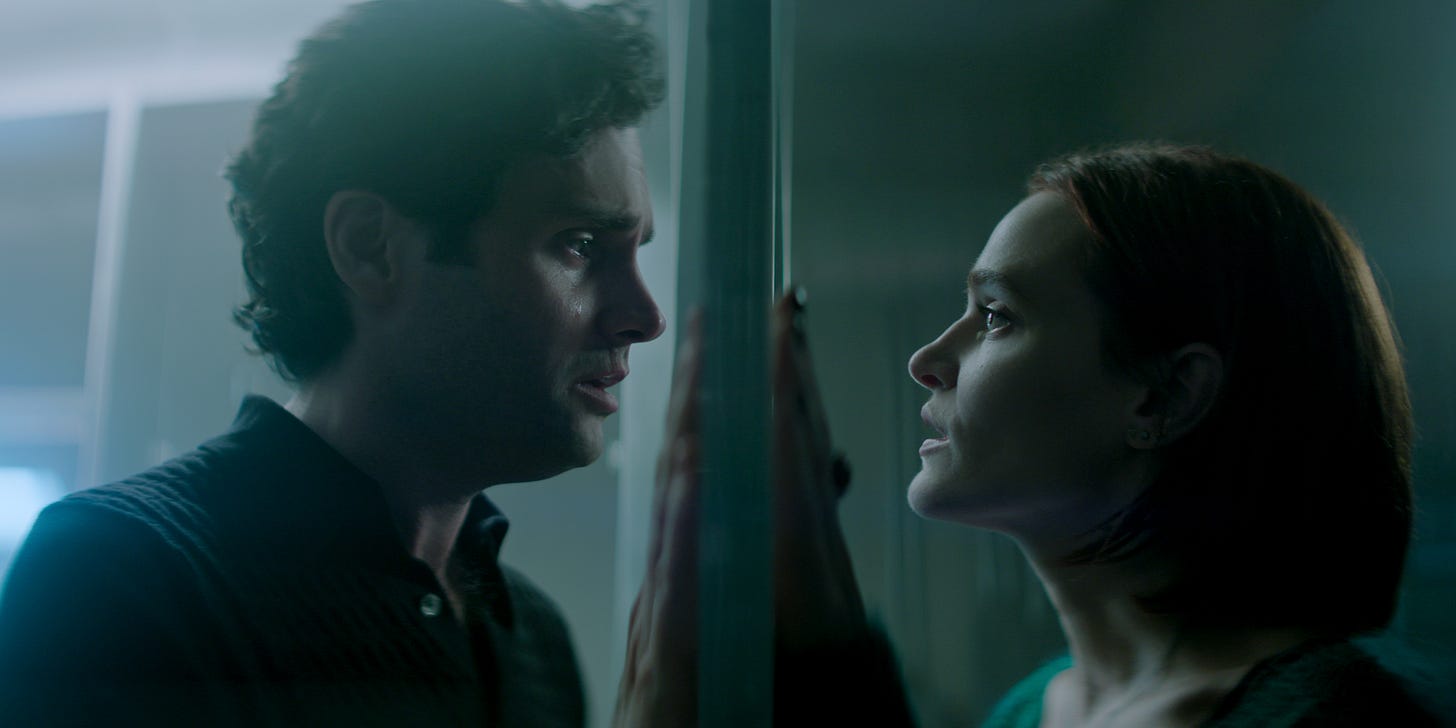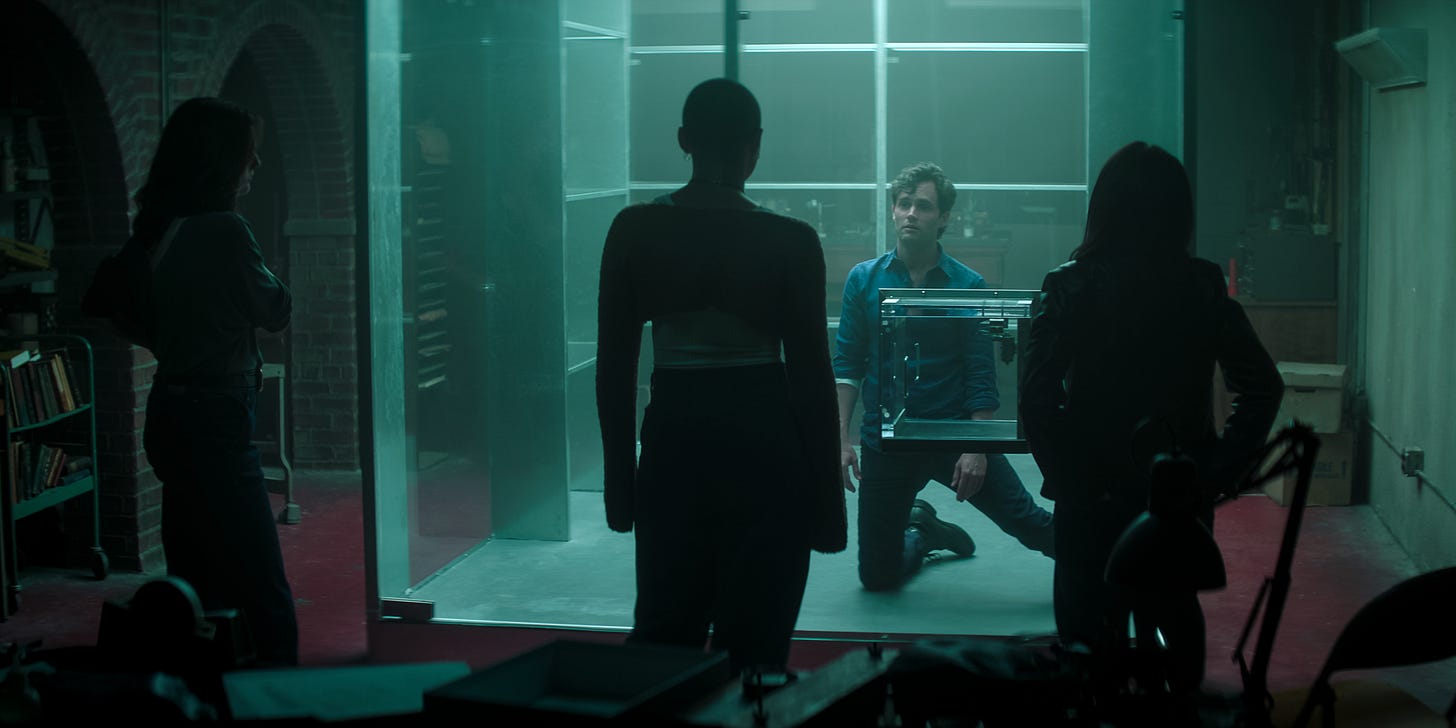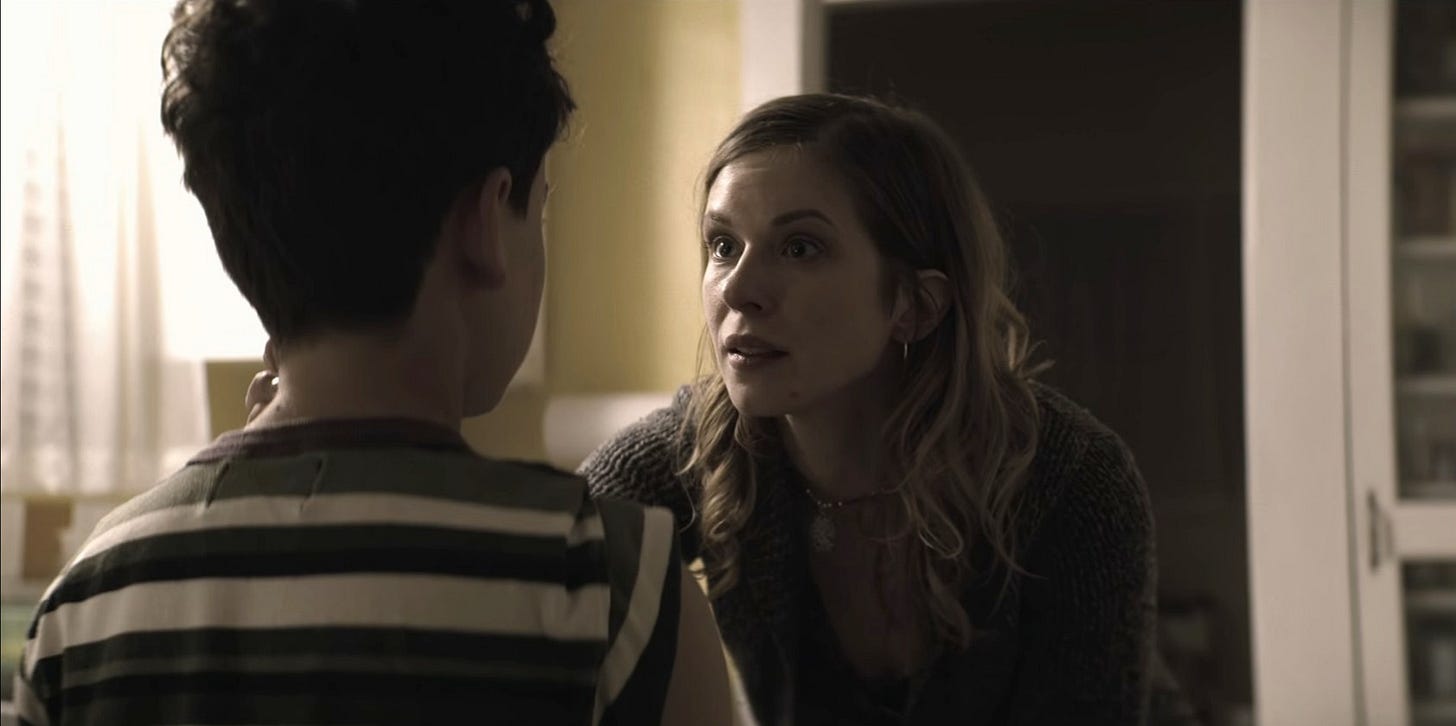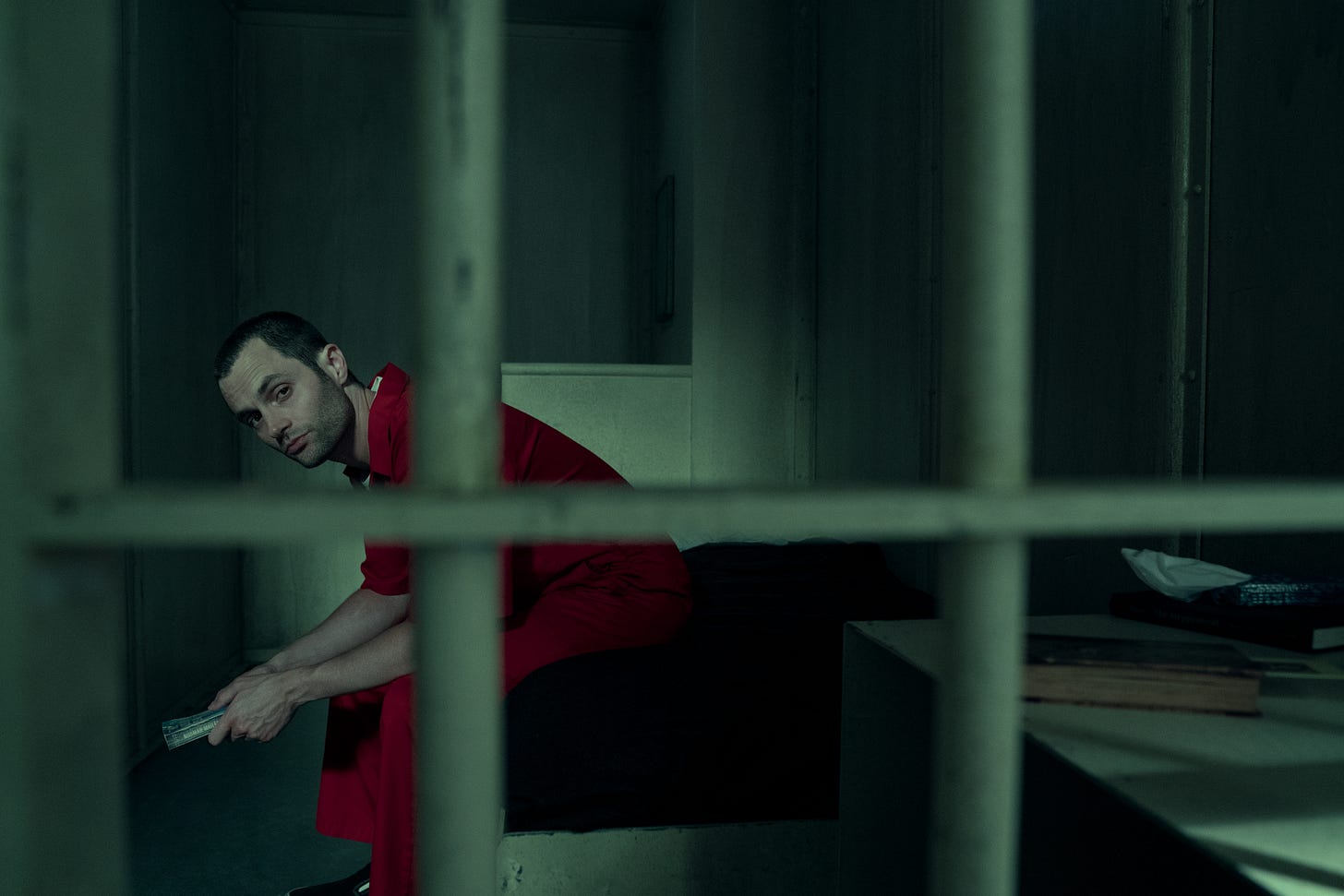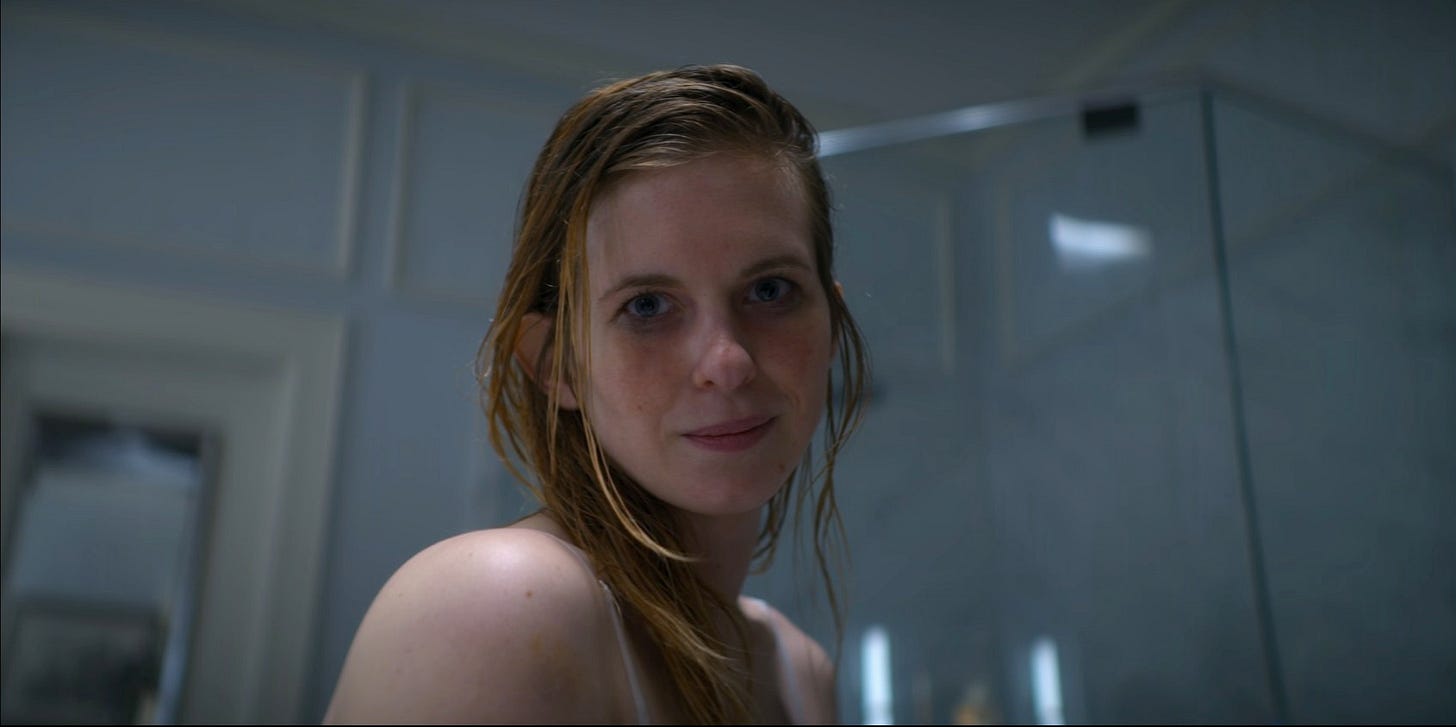The (S)mothering of Joe Goldberg
How One Mom Shaped TV’s Most Charming Creep
This piece is part of A Week of YOU here on Hi Shelli! In celebration of the fifth and final season of the series!
We know that just because a show or a new season drops, that doesn’t mean you had the time to watch it. So we waited at least a week to drop pieces that have got a light to heavy spoiler flow. So that being said…spoilers ahead!
Joe Goldberg is many things: a book lover, an obsessive romantic, a self-proclaimed protector of love... oh, and a prolific serial killer with a knack for narrating his crimes like he's writing a heartfelt diary entry. But before he was hiding bodies in basements or falling in love every five seconds, Joe was just a little boy who wanted his mom to love him back.
Really love him.
Unconditionally.
And if you’ve watched YOU from Season 1 through to now, you know that Joe’s “mommy issues” aren’t just a footnote in his villain origin story. They’re the blueprint.
Joe’s childhood was a cocktail of abandonment, violence, and neglect, shaken (not stirred) with a twist of warped affection. His mother, Sandy Goldberg, was inconsistent at best, emotionally unavailable at worst, and always just out of reach. One minute she was promising to keep him safe, the next she was handing him over to the state (after he had killed his abusive dad for her, mind you).
Joe’s earliest memories of love came with conditions, unpredictability, and loss, all of which eventually become the toxic framework he carries into every relationship he has.
Joe doesn’t just fall in love with women. He tries to fix them. He tries to be their everything because that’s the love he always wanted and never got with his mom. He micromanages, manipulates, and yes—murders—under the guise of protection. In Joe’s (albeit twisted) mind, if he just does enough, if he is enough, people won’t leave him the way his mom did.
Sandy haunts Joe like a ghost with red lipstick and a cigarette. Whether he’s projecting her onto Beck, or measuring Love’s maternal instincts against hers, Joe’s entire worldview is tinted and tainted by the way he was (and wasn’t) mothered. He idealizes women, then punishes them when they inevitably disappoint him.
He builds them pedestals and then panics when they wobble.
And let’s not forget Joe’s dad era in Season 3, where he becomes the very thing he swore he’d never be: a parent who damages his child.
His fear of repeating his mother’s mistakes is palpable, but so is his inability to break the cycle. It’s heartbreaking to watch. The trauma and unresolved mommy issues run too deep, and Joe seems almost incapable of making healthy choices that don’t involve murder.
As we've watched across five seasons, each woman in Joe's life becomes a distorted mirror of his mother. Beck represented the unattainable love he craved: intelligent, beautiful, and slightly damaged enough for Joe to "fix." Love offered the ultimate maternal fantasy: someone who not only accepted his darkness but matched it with her own. Marienne represented his chance at redemption, only for Joe to revert to his patterns when threatened. Even Kate Lockwood—powerful, protective, and ultimately disillusioned—becomes the enabler his mother never was before she too sees through his facade.
Season 5's Bronte is perhaps the most telling reflection; a writer who shares his love of books, making her the perfect vessel for his projections. But with each episode, it becomes obvious that this final season is less about Joe finding new victims and more about the women in his orbit finally seeing him for what he truly is: a "pathetic misogynist" who has mastered the art of self-victimization.
In the final season, we see Joe's approach to "love" for what it truly is. Not protection but possession. Not care but control. Three years into his picture-perfect life with Kate, Joe has embraced his killer instinct without the pretense of necessity. The smothering love he learned from his relationship with his mom has evolved into something sinister—a man who believes his violent tendencies are good rather than necessary evils.
What's fascinating about the final season is how it brings Joe's maternal wound full circle. Kate initially serves as a maternal figure of sorts, protecting him, scrubbing his past clean, and creating a safe haven for him. But when she begins to pull away from his increasingly unhinged behavior, Joe's abandonment wounds reopen. And instead of going to therapy (I’m literally begging at this point), he responds by becoming even more controlling, more desperate, more dangerous—destroying the very relationships he claims to cherish.
Perhaps the most satisfying aspect of the final season is seeing the collective consciousness of the women in Joe's orbit reawakened. From Nadia in prison to Kate's growing disillusionment, the women who have been manipulated, gaslighted, and traumatized by Joe finally emerge out of their fog and start to recognize the patterns of his manipulation, they see through his self-victimization, and they begin to take back their narratives.
The boy who was abandoned by his mother ultimately meets his downfall at the hands of all the women he tried to mold into her replacement.
And trust and believe, this isn't just character development; it's the show coming full circle. Joe, who has spent his entire life running from the truth of his childhood, must finally face the reality of what he's become.
Penn Badgley's (you will always be famous!!) astute portrayal of Joe in this final season is the proverbial nail in the coffin in the deconstruction of the fantasy Joe built around himself. The mask slips, revealing not a romantic hero but an absolutely broken and damaged man whose childhood wounds have festered into something monstrous.
Joe's journey was never really about finding love. it was about running from himself. Joe Goldberg was never the hero of his story. He was always the villain, shaped by a mother who couldn't love him or protect him the way he needed, but perpetuated by his own refusal to heal.
In the end, the show poses a powerful question about our society's fascination with men like Joe. Bronte delivers one of the most powerful lines of the entire series (IMO) in the finale: "The fantasy of a man like you is how we cope with the reality of a man like you."
Well, damn.
That reality carries the full weight of the underbelly of this show and Joe’s twisted sense of self and morality. It's a mirror held up not just to Joe, but to all of us who have been captivated by his toxic charm for five seasons.
What started with a mother's abandonment ends with a collective awakening—Joe's, yes, but also our own. The cycle of mothering, smothering, and destruction finally breaks, not with redemption, but with the harsh light of truth.
If You Liked This Edition of Hi Shelli……
Thank you so much for reading Hi Shelli!
As always, all reviews are in front of the paywall and if you like what you read I hope you consider becoming a paid subscriber it helps me pay guest writers like Gloria for their words so that I can share them with you.



